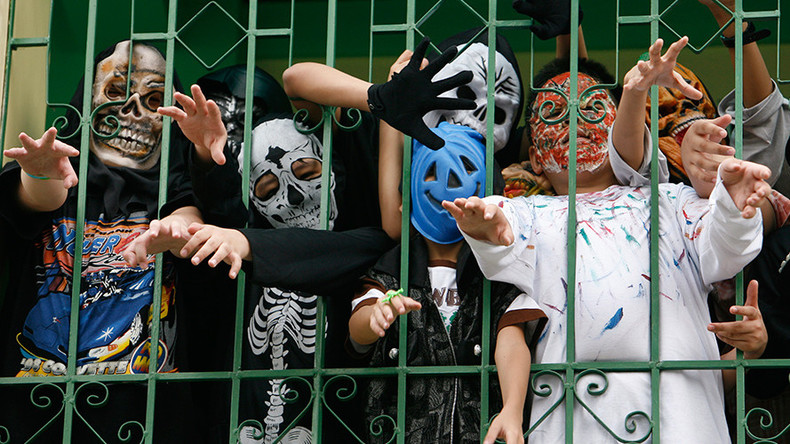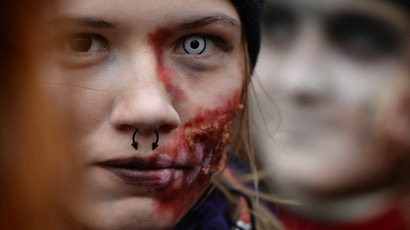Pro-Christian lawmaker seeks ban on Halloween celebration in Russian schools

In his letter to Education Minister Olga Vasilyeva, Milonov wrote that in his view celebrations of Halloween by kids were unacceptable “both from the point of view of studying and upbringing and the position of spirituality and morals.” He also wrote that the necessity to shield children from the “decaying and negative influence of Halloween” was long overdue. He concluded the letter with a call for a nationwide ban on Halloween celebrations in primary schools and kindergartens.
Milonov also noted that in his opinion the ministry should explain to teachers “the real meaning of Halloween and its consequences for children” which he described as “the most powerful psychophysical, emotional and suggestive influence.”
The Education Ministry’s press service issued a reply to Milonov’s letter in which it said that Halloween is not on the list of holidays and memorial dates officially recommended to schools.
Russian politicians and activists at both regional and federal levels routinely address the topic of Halloween, as its popularity in the country has increased – largely through marketing events.
For example, in 2014 members of the Russian Public Chamber asked the government to issue an official recommendation for businessmen to abstain from Halloween celebrations, saying that horror-themed parties “induce lowly feelings,” and “turn into orgies.”
In 2013 an official representative of the Russian Orthodox Church, Vsevolod Chaplin, called Halloween dangerous. “At first, people play with the evil spirit as a joke, but then they begin to play seriously with these things. This leads to serious problems: sickness, sadness, and despair,” Chaplin was quoted as saying by the popular news site Lifenews.
In the same year the Education Ministry in the Omsk region sent letters to local state schools telling them to take measures to curb any events marking Halloween on the grounds it “promotes extremism” and a “death cult” that can harm the moral health of children.











